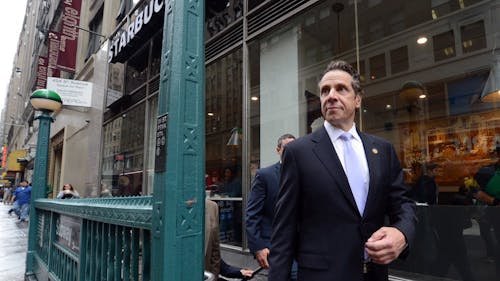KAO: Coronavirus moralizing must be replaced by real action
Column: Left on Red

I am guilty of it, and you are too. Every time we have seen someone violating a coronavirus (COVID-19) disease protocol: not keeping 6 feet away, not wearing a mask, properly and more.
Whenever I see a person who covers their mouth but not their nose, I become unspeakably annoyed. Social media is replete with examples of this type of discourse too. By now, we have all read the news stories condemning college students for holding parties on their newly reopened campus grounds.
Back in March, which hardly seems like six months ago, the media was in a buzz about the not-yet initiated start of U.S. lockdowns, and newscasts were awash in images of clearly inebriated college students on spring break in places like Miami, Florida, and the condemnations flew thick about their irresponsibility.
In the last few weeks of August, as various universities around the country have restarted for the fall semester and invited students back on campus, this discourse has reasserted itself in full force. This is what daily life has become reduced to, on the occasions when we do venture outside of our homes.
At every level, this is a completely understandable impulse for us to have. A way in which one might think of these behaviors is that this type of moralizing constitutes a form of mutual accountability, a sort of “we keep each other safe” attitude. But, this would be an overly generous assessment. While we may flatter ourselves that such censorious attitudes provide accountability, what this type of discourse does is cement a moralistic, and worse, individualistic mode of thinking.
One might ask, what is wrong with a little moralistic thinking? It should come as no great surprise that the people of the United States, with its long history of puritanical values, would feel comfortable falling back upon the tool kit of moralistic thinking and the tenets of righteous denunciation.
But the problem with this method of thinking about public health measures and the coronavirus pandemic, is that it drastically misses the failures that have actually occurred. We have become so busy policing each other in the store and on the street that we have forgotten why exactly we have been reduced to living in this dreadful fashion.
In a way, such moralism distracts us from the collective failure of our institutions and our leaders. It is a way for us to manage the macro-level horrors by focusing on micro-level errors.
Let us return to March, back to the searing images of reckless college youth living it up on the beaches of Miami. Roundly condemned by an array of influential figures like Gov. Andrew Cuomo (D-N.Y.), these spring breakers became a potent symbol for juvenile recklessness in the face of an apocalyptic pandemic.
But if we examine the spring break situation in Florida a bit more closely, this neat story suddenly becomes much more complicated. Instead of taking prompt steps to shut down the partying on the beaches of Miami, the mayor of that city sat on his hands and did nothing of the sort, doubtless wishing to preserve the economic gains produced by a throng of students.
Likewise, Gov. Ron DeSantis (R-Fla.) failed to take steps to curtail the partying (although there was surely a partisan element to this failure to institute public health safety protocols, as the Republican Party was, and for the most part, is still committed to coronavirus denial, and DeSantis is a Republican).
With this in mind, the fevered denunciations of the college students that took place in the opinion pages of newspapers and social media postings become much less reasonable. Instead of jumping to criticize the college students, it would have been better to think about what the individuals with the most power to act — in this case, elected officials — were or were not doing with their power.
The mayor and the governor were these individuals, but they did not come in for nearly as much criticism as their inaction warranted, and that had much to do with the irrational focus on the college students. I should note here that I am not defending the actions of these college students, which were surely not well thought out. Rather, I am insisting on a mode of discourse that targets those with the most power, instead of taking relatively powerless college students as convenient punching bags.
We should approach reports of college campus partying with a similar critical eye. While college students should not have engaged in the type of unsafe celebrations that made headlines, it was the senior administrators of those universities that made the decision to reopen campuses. Thinking about who has the real power to make decisions is the right way to think about the failures of the pandemic. Enough moralizing. We need critical thinking.
Samuel Kao is a School of Arts and Sciences junior majoring in history. His column, "Left on Red," runs on alternate Mondays.
*Columns, cartoons and letters do not necessarily reflect the views of the Targum Publishing Company or its staff.YOUR VOICE | The Daily Targum welcomes submissions from all readers. Due to space limitations in our print newspaper, letters to the editor must not exceed 500 words. Guest columns and commentaries must be between 700 and 850 words. All authors must include their name, phone number, class year and college affiliation or department to be considered for publication. Please submit via email to oped@dailytargum.com by 4 p.m. to be considered for the following day’s publication. Columns, cartoons and letters do not necessarily reflect the views of the Targum Publishing Company or its staff.



